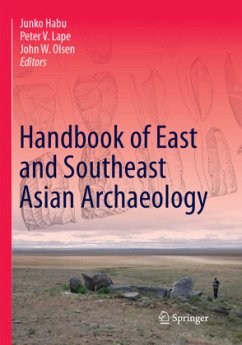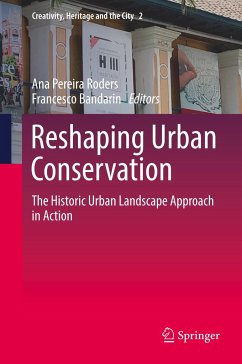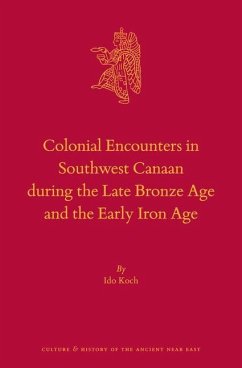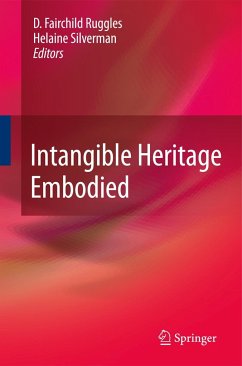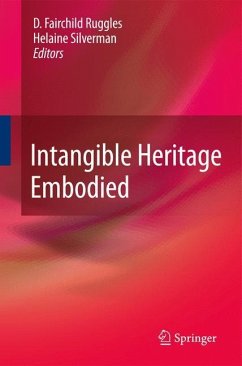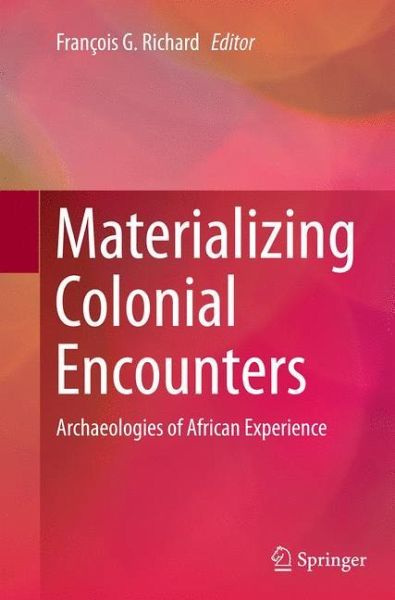
Materializing Colonial Encounters
Archaeologies of African Experience
Herausgegeben: Richard, François G.
Versandkostenfrei!
Versandfertig in 6-10 Tagen
76,99 €
inkl. MwSt.

PAYBACK Punkte
38 °P sammeln!
This volume investigates the material production and expression of colonial experiences in Africa. It combines archaeological, historical, and ethnographic sources to explore the diverse pathways, practices, and projects constructed by Africans in their engagement with the forces of colonial modernity and capitalism. This volume is situated in ongoing debates in archaeological and anthropological approaches to materiality. In this respect, it seeks to target archaeologists interested in the conceptual issues provoked by colonial enfoldments. It is also concerned with increasing the visibility ...
This volume investigates the material production and expression of colonial experiences in Africa. It combines archaeological, historical, and ethnographic sources to explore the diverse pathways, practices, and projects constructed by Africans in their engagement with the forces of colonial modernity and capitalism. This volume is situated in ongoing debates in archaeological and anthropological approaches to materiality. In this respect, it seeks to target archaeologists interested in the conceptual issues provoked by colonial enfoldments. It is also concerned with increasing the visibility of relevant African archaeological literature to scholars of colonialism and imperialism laboring in other fields.
This book brings together an array of junior and senior scholars, whose contributions represent a rich sample of the vibrant archaeological research conducted in Africa today, blending conceptual inspiration with robust fieldwork. The chapters target a variety of cultural,historical, and colonial settings. They are driven by a plurality of perspectives, but they are bound by a shared commitment to postcolonial, critical, and material culture theories.
While this book focuses on western and southern Africa - the sub-regions that boast the deepest traditions of historical archaeological research in the continent - attention was also placed on including case-studies from traditionally less well-represented areas (East African and Swahili coasts, Madagascar), whose material pasts are nevertheless essential to a wider comprehension of variability and comparability of 'modern' colonial conditions. Consequently, this volume lends a unique wide-ranging look at African experiences across the tangle of imperial geographies on the continent, with case-studies focusing on Anglophone, Francophone, and Dutch-speaking contexts. This volume is an exciting opportunity to present this work to wider audiences and foster conversations with a wide community of scholars about the material fashioning of colonial life, relations, and configurations of power.
This book brings together an array of junior and senior scholars, whose contributions represent a rich sample of the vibrant archaeological research conducted in Africa today, blending conceptual inspiration with robust fieldwork. The chapters target a variety of cultural,historical, and colonial settings. They are driven by a plurality of perspectives, but they are bound by a shared commitment to postcolonial, critical, and material culture theories.
While this book focuses on western and southern Africa - the sub-regions that boast the deepest traditions of historical archaeological research in the continent - attention was also placed on including case-studies from traditionally less well-represented areas (East African and Swahili coasts, Madagascar), whose material pasts are nevertheless essential to a wider comprehension of variability and comparability of 'modern' colonial conditions. Consequently, this volume lends a unique wide-ranging look at African experiences across the tangle of imperial geographies on the continent, with case-studies focusing on Anglophone, Francophone, and Dutch-speaking contexts. This volume is an exciting opportunity to present this work to wider audiences and foster conversations with a wide community of scholars about the material fashioning of colonial life, relations, and configurations of power.





